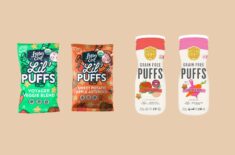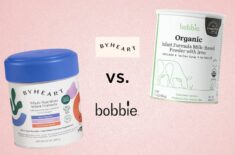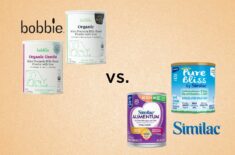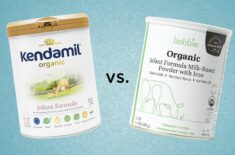Overview
Little Spoon offers tailor-made baby food menus to suit your child’s developmental needs. Some parents find that ideal, but what if you change your mind? Is it easy to cancel your subscription plan and get a refund of advance payments you might have made? Find out below.
How Do I Cancel My Subscription To Little Spoon?
If, for some reason, you no longer need or want to receive products from Little Spoon, canceling your order is easy to do:
- Log in to your account on the Little Spoon website
- Go to the Plans and Orders section
- Click the “Edit Plan” button next to the plan you want to cancel.
- Click “Cancel Your Plan.” Follow the instructions and confirm your choice.
However, first orders and pending orders made after the Saturday cutoff can’t be canceled.
If you have multiple baby food subscriptions, you’ll need to cancel each one individually.
You can also opt to pause or skip your plan at any time.
If you have problems canceling your account or have other concerns you want to tell Little Spoon, you can write to the Care Team at [email protected].
What’s Little Spoon?
Little Spoon is a subscription-based baby food company that delivers freshly prepared organic baby food to your doorstep every two weeks.
This brand provides you with two options to suit fit your growing child’s needs:
- BabyBlends – fruit and vegetable purees for infants six months old and above who are just starting on solid foods
- Plates – set meals for toddlers and big kids up to 10 years old
Little Spoon doesn’t offer finger foods for their toddler meals, unlike Yumi or other competitors. But it offers the following healthy options:
- Probiotics
- Natural remedies
- Vitamin supplements
Is Little Spoon A Subscription?
Like many baby food subscription brands or online stores, Little Spoon delivers your child’s food to your home. You can pick how many packs or sets you want to order for each delivery period (two weeks).
What Makes Little Spoon Different?
All baby food products are claimed to be free from:
- Heavy metals.
- GMOs (genetically modified organisms).
- Major allergens.
- Added sugars.
- Preservatives.
- Additives.
- Artificial flavors.
- Fillers.
- Food coloring.
- Hormones.
- Extreme heat processing.
But the main difference between Little Spoon and other brands is that the company picks your baby’s foods instead of letting you choose which ones you want your child to eat.
It’s something that makes it unique from other meal delivery service companies, but some parents aren’t happy that Little Spoon is the one controlling what foods are sent to babies.
Some parents have complained via Little Spoon reviews that their children rejected the foods, but they didn’t get a refund for those items.
Little Spoon is also different from other brands because it offers an online community called Is This Normal. It’s a place where you can find answers to questions about baby food products, raising your little one, or other parenting concerns. (1)
How Little Spoon Works
You can’t buy Little Spoon products from grocery stores or other online retailers. It’s only available via the brand’s official website, littlespoon.com.
Order Process
The company works with a team of pediatricians and nutritionists to create a customized plan for your baby.
So, when you order, you’ll be asked to provide the following information about your baby:
- Age and developmental milestones
- Type of milk (formula, breastmilk, or mix)
- Other types of food consumed
- Meat preferences
- Possible allergies
- Special situations or medical issues
- Other preferences
Then, you’ll need to pick how many blends or set meals you want to be delivered every two weeks.
Shipping & Return Policy
Your first order will be delivered the following Tuesday. Then, your regular food subscription will be delivered every two weeks afterward.
The packages use recycled denim for insulation and are shipped with ice packs to help keep your items fresh.
Little Spoon delivers only to the 48 contiguous states and is currently unavailable in Alaska and Hawaii.
Subscription Control & Return Policy
You can track or modify your orders on the Little Spoon website.
The company doesn’t have a return policy because of the nature of these baby food products.
Pros & Cons
The following pros and cons might help you decide whether you’ll choose a Little Spoon baby food subscription or cancel an existing plan:
Pros
- All the baby food products are made from certified organic ingredients.
- A team of pediatricians and nutritionists creates tailor-made meal plans for your child, depending on their developmental milestones and other nutritional needs.
- The baby foods are prepared using tried-and-tested scientific methods, such as cold-pressure pasteurization, that can help provide proper nutrition and healthy foods for your baby’s needs.
- The kid’s meals feature plenty of ‘invisible’ vegetables and are designed for picky eaters. These set meals are available for big kids up to 10 years old.
- Vitamins, natural remedies, and probiotics are also available.
- Subscription plans are delivered every two weeks.
Cons
- BabyBlends (baby foods) are limited only to purees. Unlike Yumi, Little Spoon doesn’t have finger foods.
- You can’t choose the foods to include in the meal plan.
- Little Spoon chooses these foods based on the customized meal plan prepared by a team of pediatricians and nutritionists. It’s possible that your child might refuse to eat some of these foods.
- The company doesn’t offer any refund for foods that your kid refuses to eat.
- The kid’s meals might have some allergens (indicated on the packaging).
Why Choose Little Spoon For Baby Food Subscription
Certified Organic Foods for Your Little One
The organic ingredients used by Little Spoon are certified by CCOF (California Certified Organic Farmers) and the USDA (US Department of Agriculture).
Feeding your child with organic foods may help reduce the risks of congenital problems, obesity, and otitis media (inflammation of the middle ear). (2)(3)
These foods can also reduce the risks of infertility, allergic sensitization (sensitivity to certain allergens), blood cancers called non-Hodgkin lymphoma, and other types of cancer. (2)(3)
Little Spoon is also Non-GMO Project verified, which means that: (4)
- All of its products are produced without genetic engineering
- The ingredients and raw materials are not from GMOs.
- Strict provisions for segregation, traceability, and testing are followed in the production process.
- The company regularly undergoes testing and inspection for non-GMO compliance.
Food Safety & Production
No Preservatives & No Extreme Heating
Little Spoon doesn’t use extreme heat cooking techniques which can reduce the baby food’s nutritional value.
Cold-pressure pasteurization may help ensure that the fresh purees can stay fresh for 14 days in your fridge.
In contrast, commercial baby foods and grocery store brands can contain preservatives and may have been heavily processed to kill microorganisms. These methods can help them last for years on supermarket shelves.
Safe Manufacturing Practices & Containers
All products are made in allergy-friendly kitchens following strict production and sanitation practices.
Each batch undergoes third-party lab tests to ensure that all products continually meet internal and government standards.
The kitchen facilities are also tested every week.
BabyBlends and Plates are placed in BPA-free nutrition-preserving packs. BPA (bisphenol-A) is a toxic material often used in plastic manufacturing.
In addition, the delivery packs are 100% curbside recyclable. The plates for the kiddie meals can also be reused at home; they’re dishwasher safe.
BabyBlends: Meal Flavors & Nutrition Facts
Little Spoon offers baby foods (BabyBlends) for babies at least six months old. Each meal is a puree made from fruits or vegetables.
The puree blend is designed to introduce your child’s palate to different flavors and may help keep them from becoming picky eaters.
The rotating menu changes every season, but the single-ingredient purees or combination veggie purees can include the following ingredients:
- Apples
- Avocados
- Avocado oil
- Bananas
- Basil
- Beets
- Blueberries
- Broccoli
- Buckwheat
- Butternut squash
- Carrots
- Chia
- Chickpea
- Cinnamon
- Coconut milk
- Dates
- Flax oil
- Gingers
- Hemp
- Kale
- Mangoes
- Mint
- Peas
- Pears
- Pineapples
- Pitaya
- Prunes
- Pumpkin seed
- Quinoa
- Spinach
- Raspberry
- Red bell pepper
- Rhubarb
- Rosemary
- Spirulina
- Strawberry
- Strawberry and
- Sweet potatoes
- Turmeric
- Vanilla
- Wheat germ oil
- White beans
- Zucchini
Proteins for these BabyBlends are sourced entirely from plants: legumes, grains, and seeds.
Nutrition facts for the strawberry, basil, pear, beet, and chia blend:
- Calories: 60
- Fats: 1g
- Carbs: 13g
- Fibers: 4g
- Proteins: 1g, 9%
- Potassium: 35%
- Vitamin C: 45%
- Folate: 70%
- Vitamin B6: 20%
- Calcium: 10%
Nutrition facts for the butternut squash puree:
- Calories: 50
- Fats: 0g, 0%
- Carbs: 13g, 14%
- Fibers: 2g
- Proteins: 1g, 9%
- Potassium: 60%
- Vitamin C: 50%
- Vitamin E: 30%
- Vitamin A: 700%
Plates: Meal Flavors & Nutrition Facts
Once your baby is ready to eat other solid foods, you can transition to the big kid’s meals (Plates) which are suitable for children up to 10 years old:
- Beet superfood sliders with peas
- Broccoli bites with green beans
- Cauliflower croquettes and carrots
- Cheesy black bean pupusas
- Chicken potstickers
- Chicken super nuggets with broccoli
- Chicken teriyaki
- Gluten-free cauliflower gnocchi
- Mac and three-cheese with “invisible” carrots and butternut squash
- Penne and kale turkey meatballs with broccoli
- Southwest chicken fajita bowl
- Spaghetti and turkey meatballs with broccoli and kale
- Spinach and cheese ravioli
- Three cheese egg bites
- Three cheese tortellini with kale pesto
- Turkey kale sliders
- Turkey rice balls
- Turkey taco bowl
- Veggie tenders with broccoli
Many of these set meals contain “hidden” veggies in the following:
- Sweet potato carrot poppers
- Veggie marinara sauce
- Sweet potato hash
- Carrots and millet popper
- Spanish veggie rice
- Veggie millet poppers
- Quinoa veggie stir fry
- Quinoa “fried rice”
Nutrition facts for the chicken potstickers, a picky-eater favorite:
- Calories: 240
- Fats: 7g, 9%
- Carbs: 31g, 11%
- Fibers: 5g, 18%
- Proteins: 14g
- Potassium: 6%
- Iron: 15%
- Vitamin B6: 20%
- Calcium: 4%
- Dietary fiber: 18%
These dipping sauces have no preservatives and additives:
- Avocado crema
- Creamy dill ranch
- Honey mustard
- Soy glaze
- Veggie ketchup
Health Boosters & Nutrition Facts
These probiotics, vitamins, and natural remedies are available at $5.99 for one box (contains five packs):
- Wiz Kid vitamins have omega-3 DHA (docosahexaenoic acid), vitamin E, and iron for your child’s healthy brain development.
- Sniffle Shield contains probiotics, zinc, vitamins C & E, and elderberry that can strengthen your child’s immune system, especially during sick days.
- Gut Feeling probiotics contain Lactobacillus rhamnosus DSM 6594 that may help improve your child’s gut and immune health.
- Poopie Power has probiotics and prebiotics that may help alleviate constipation and promote better tummy health.
Nutrition facts (% Daily Values) for the Sniffle Shield:
- Calories: 5
- Carbs: 2g
- Vitamin C: 100%
- Vitamin E: 100%
- Zinc: 100%
Consult with your pediatrician before giving natural remedies or health boosters to your baby.
Cost Of Little Spoon Subscription Service
The price will depend primarily on the plan (number of meals per week) and the type of meal (BabyBlends or Plates) you subscribe to:
- BabyBlends start at $2.75 per meal
- Plates start at $5 per meal
The cost per blend/meal is lower if you order more.
Little Spoon BabyBlends
- One meal per day (with 14 meals) = $25 per week or $3.50 per blend
- Two meals per day (with 28 meals) = $45 per week (instead of $49) or $3.20 per blend
- Three meals per day (with 42 meals) = $58 per week (instead of $74) or $2.75 per blend
Little Spoon Plates (Kid’s Meals)
- Four meals per week (with eight meals) = $26 per week or $6.50 per meal
- Six meals per week (with 12 meals) = $36 per week (instead of $39) or $6 per meal
- Nine meals per week (with 18 meals) = $50 per week (instead of $59) or $5.50 per meal
- Twelve meals per week (with 24 meals) = $60 per week (instead of $78) or $5 per meal
Shipping costs: $5 for BabyBlends and $6 for Plates
FAQs About Little Spoon
Is It Vegan?
All Little Spoon baby food purees are sourced from plants.
Is It FDA Approved?
While it adheres to the guidelines and standards established by the FDA (Food and Drug Administration), Little Spoon doesn’t have approval.
What’s The Age Range For These Products?
Your baby may already eat solid foods like Little Spoon BabyBlends beginning six months old and above. The purees are designed for infants until around ten to twelve months old.
Plates are available for toddlers and big kids up to 10 years old.
Can I Freeze Little Spoon?
Yes, all the Little Spoon products may be placed in the fridge or frozen:
- Both purees and kid’s meals: up to 14 days in the fridge
- Purees: up to three months in the freezer
- Plates meals: up to two months in the freezer
Can You Reheat Little Spoon Meals?
Yes, you can heat all Little Spoon products in a pot on the stove or using a microwave.
In heating these meals, don’t open the pack. It’s designed with a special seal that can keep the temperature even during the heating process.
What If My Kid Rejects The Food?
Little Spoon chooses your baby’s food but doesn’t refund anything that your child refuses to eat.
Instead, it recommends that you keep trying until your child gets used to the food and develops a taste for it.
According to the company’s nutritionists, kids might reject a new food because it may take at least 15 tries before their taste buds recognize it.
Though it can be frustrating to pay for foods that your baby simply rejects, Little Spoon believes that introducing them to new foods can help prevent them from turning into picky eaters.
For big kids, it’s recommended that you let them pick the meal kits. By participating in the meal planning process, they might feel more excited about eating the ones they picked.
Little Spoon Contact Details
Here are some ways to contact Little Spoon for any questions:
- Call or text: 415-855-4155
- Email: [email protected]
- Media inquiries: [email protected]
- Live chat on the website: littlespoon.com
2021 Congressional Baby Food Safety Reports
In February 2021, the Subcommittee on Economic and Consumer Policy of the U.S. House of Representatives released a detailed report on baby food safety. (5)
It showed that several popular baby food brands contain alarmingly high levels of toxic heavy metals: (5)
- Nurture, Inc. (Baby Food Recall and HappyTOT)
- Beech-Nut Nutrition Company (Beech-Nut)
- Hain Celestial Group, Inc. (Earth’s Best Organic)
- Gerber
- Campbell’s Plum Organics
- Walmart Inc. (Parent’s Choice)
- Sprout Foods, Inc. (Sprout Organic Foods)
Many parents trust these commercial baby food manufacturers. So, it’s alarming that their products contain high levels of toxic elements. (5)
Worse, many of them reportedly adjusted their internal standards so that their products passed internal limits, even if these actually failed government standards. (5)
Also, independent tests commissioned by the HBBF (Healthy Babies Bright Futures) in 2019 showed that 95% of commercial baby foods have measurable levels of heavy metals. (6)
Yet none of the companies recalled their tainted products, even if concerns were raised that exposure to heavy metals may lead to children’s behavioral problems and IQ decline. (7)(8)(9)
Healthier Alternatives
Parents searching for healthier alternatives can consider the organic purees and kid’s meals offered by Little Spoon. This baby food delivery service sends certified organic products to your doorstep.
Little Spoon may be a healthier alternative to these toxic brands. It’s a baby food subscription company that can offer organic products with no heavy metals, preservatives, and additives.
You can also try the following:
- Yumi (subscription-based)
- Once Upon A Farm
- Serenity Kids
- Little Journey Organics
REFERENCES
(1) http://www.healthybabyfood.org/sites/healthybabyfoods.org/files/2019-10/BabyFoodReport_FULLREPORT_ENGLISH_R5b.pdf
(2) https://oversight.house.gov/sites/democrats.oversight.house.gov/files/2021-02-04%20ECP%20Baby%20Food%20Staff%20Report.pdf
(3) https://oversight.house.gov/sites/democrats.oversight.house.gov/files/ECP%20Second%20Baby%20Food%20Report%209.29.21%20FINAL.pdf
(4) https://isthisnormal.littlespoon.com/
(5) https://www.ncbi.nlm.nih.gov/pmc/articles/PMC7019963/
(6) https://www.ncbi.nlm.nih.gov/pmc/articles/PMC6583612/
(7) https://www.nongmoproject.org/gmo-facts/non-gmo-project-verified-faq/
(8) https://pubmed.ncbi.nlm.nih.gov/23570911/
(9) https://www.ncbi.nlm.nih.gov/pmc/articles/PMC4418502/












